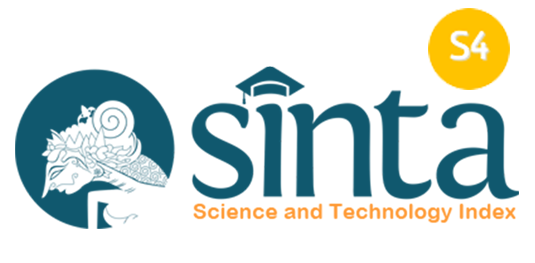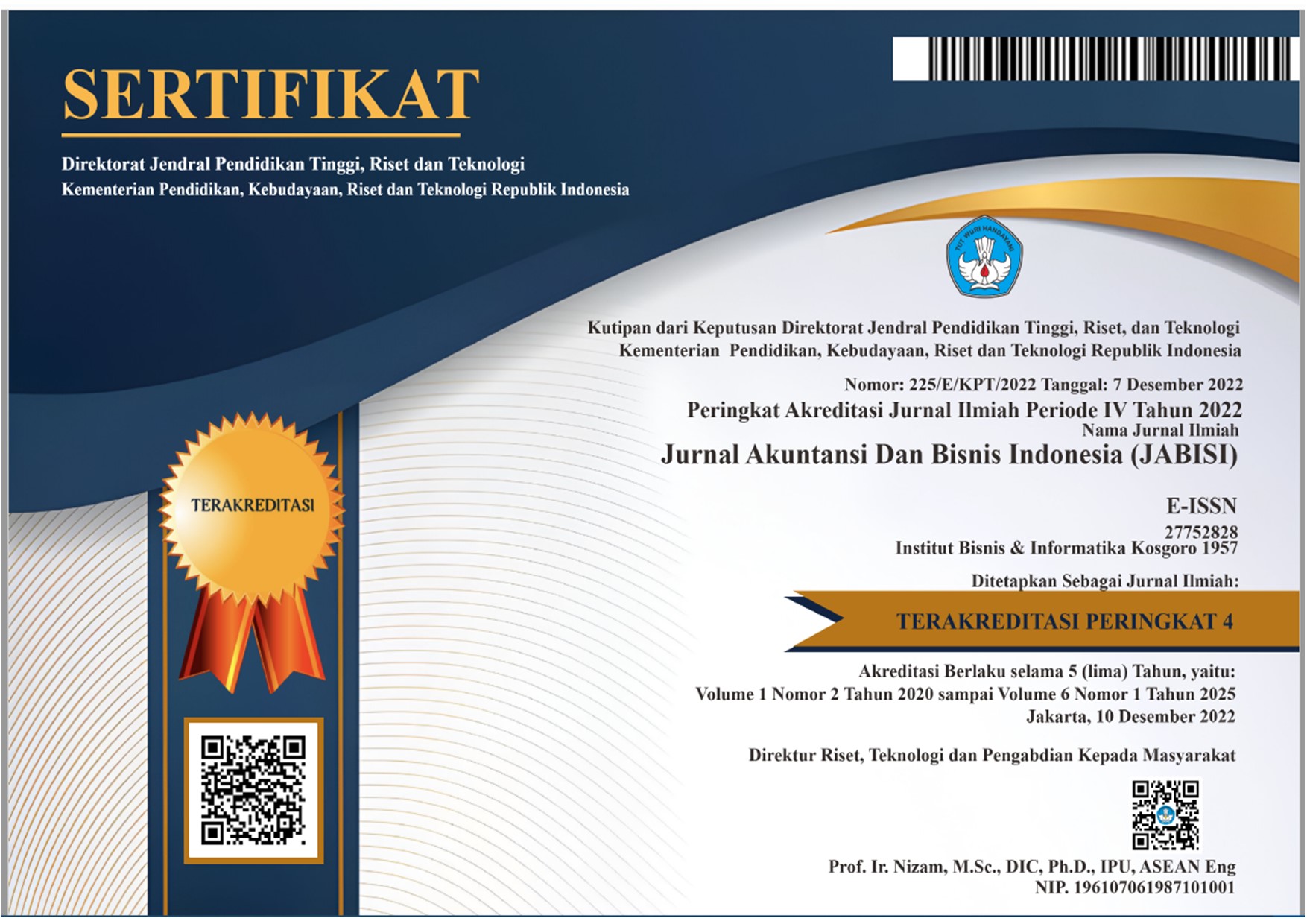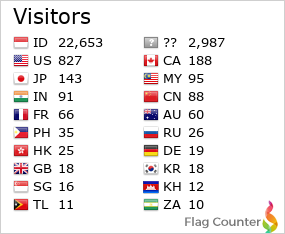PENGARUH REGULASI, PENGAWASAN, DAN PERILAKU MASYARAKAT TERHADAP EFEKTIVITAS PENCEGAHAN PINJAMAN ONLINE ILEGAL
DOI:
https://doi.org/10.55122/jabisi.v5i2.1480Keywords:
Regulasi, Pengawasan, Perilaku Masyarakat, Pencegahan, Peminajaman OnlineAbstract
Penelitian dilakukan dalam rangka menganalisis keterkaitan dan pengaruh regulasi pemerintah, pengawasan serta tentang perilaku masyarakat dalam mencegah timbulnya pinjaman online ilegal yang meresahkan masyarakat. Penelitian dilakukan pada sejumlah lembaga yang berkaitan dengan urusan pinjaman online seperti Otoritas Jasa Keuangan, Dittipidsiber Bareskrim Polri, Perusahaan Fintech atau Jasa Pinjaman Online, Pusat Analisis Transaksi Keuangan dan Asosiasi Fintech di Indonesia sebagai populasi penelitian yang menggunakan teknik kuota dalam pengambilan sampel tersebut. Kuesioner merupakan teknik pengumpulan data yang dilakukan dalam penelitian ini, selain itu pengujian atas data tersebut menggunakan regresi linear berganda, dan uji hipotesis setelah pengujian kelayakan inner dan outer model dilakukan. Hasil penelitian menunjukkan bahwa hipotesis penelitian dua (H.2) dan tiga (H.3) diterima yang menunjukkan hasil bahwa pengawasan dan perilaku masyarakat dalam menggunakan internet sangat berpengaruh positif dan signifikan pada efektivitas pencegahan pinjaman online ilegal. Sedangkan pada hipotesis satu penelitian (H.1) menyatakan bahwa regulasi tidak menunjukkan pengaruh kuat pada pencegahan pinjaman online ilegal sehingga hipotesis penelitian satu ditolak.
References
Abbad, M. M. (2013). E-banking in Jordan. Behavior and Information Technology, 32(7), 618–694.
Ajzen, I. (1991). The Theory of Planned Behavior, Organizational Behavior and Human Decision Process. 50, 179–211.
Ajzen, I. (2002). Perceived behavioral control, self-efficacy, locus of control, and the theory of planned behavior. Journal of Applied Social Psychology, 32(4), 665–683. https://doi.org/10.1111/j.1559-1816.2002.tb00236.x
Alaassar, A., Mention, A. L., & Aas, T. H. (2020). Exploring how social interactions influence regulators and innovators: The case of regulatory sandboxes. Technological Forecasting and Social Change, 160(November 2019). https://doi.org/10.1016/j.techfore.2020.120257
Alkasasbeh, H., Oudat, M. S., Abu-AlSondos, I., & Alhawamdeh, L. (2024). Metaverse finance: shaping the future of Islamic fintech solutions in UAE. Journal of Islamic Marketing, ahead-of-p(ahead-of-print).
Arief, B. N. (2002). Bunga Rapai Kebijakan Hukum Pidana. Citra Aditya Bakti.
Asti, N. P. M. D. P. (2020). Upaya Hukum Otoritas Jasa Keuangan (OJK) dalam Mengatasi Layanan Pinjaman Online Ilegal. Acta Comitas, 5(1), 111. https://doi.org/10.24843/ac.2020.v05.i01.p10
Bashir, I., & Madhavaiah, C. (2015). Consumer attitude and behavioural intention towards Internet banking adoption in India. Journal of Indian Business Research, 7(1), 67–102. https://doi.org/10.1108/JIBR-02-2014-0013
Bestari, N. P. (2021). Daftar 172 Pinjol Ilegal yang Ditutup OJK, Waspadalah! CNBC Indonesia. https://www.cnbcindonesia.com/tech/20210714113635-37-260740/daftar-172-pinjol-ilegal-yang-ditutup-ojk-waspadalah
Bongomin, C. O. ., Ntayi, J. M., Munene, J. C., & Nabeta, N. I. (2016). Social capital : mediator of financial literacy and financial inclusion in rural Uganda. Review of International Business and Strategy, 26(2), 291–312. https://doi.org/10.1108/RIBS-06-2014-0072
Budiyanti, E. (2019). Upaya Mengatasi Layanan Pinjaman Online Ilegal. Info Singkat, 11(4).
Chen, D. T., Lin, T. B., Li, J. Y., & Lee, L. (2018). Establishing the norm of new media literacy of Singaporean students: implications to policy and pedagogy. Computers and Education, 124, 1–13.
Chen, M. F., & Tung, P. J. (2014). Developing an extended Theory of Planned Behavior model to predict consumers’ intention to visit green hotels. International Journal of Hospitality Management, 36, 221–230. https://doi.org/10.1016/j.ijhm.2013.09.006
Darmawan, S. P., & Prianto, Y. (2021). Fenomena Pinjol Sebagai Tambahan Modal Usaha Di Lingkungan UMKM Solo. Prosiding Serina, 505–512. http://journal.untar.ac.id/index.php/PSERINA/article/view/17502%0Ahttp://journal.untar.ac.id/index.php/PSERINA/article/download/17502/9566
Davis, F. D. (1989). Perceived Usefulness, Perceived Ease of Use, and User Acceptance of Information Technology. Management Information Systems Research Center, University of Minnesota, 13(3), 319–340.
Deegan, C. (2002). The Legitimising Effect of Social And Environmental Disclosure : a Theoetical Foundation. Accounting, Auditing & Accountability Journal, 15(3), 282–311. https://doi.org/10.1108/09513570210435852
Denton, P. D., & Maatgi, M. K. (2016). International Journal of Quality & Reliability Management. International Journal of Quality & Reliability, 32(2), 231–245.
Disemadi, H. S., & Regent. (2021). Urgensi Suatu Regulasi yang Komprehensif Tentang Fintech Berbasis Pinjaman Online Sebagai Upaya Perlindungan Konsumen di Indonesia. Jurnal Komunikasi Hukum, 7(2).
Eveleens, C. P., Van Rijnsoever, F. J., & Niesten, E. M. (2017). How network-based incubation helps start-up performance. A Systematic Review against the Background of Management Theories. J. Technol. Transf., 42(3), 676–713. https://doi.org/10.1007/s10961-016-9510-7
Farooq, M. S., Salam, M., Jaafar, N., Fayolle, A., Ayupp, K., Radovic-Markovic, M., & Sajid, A. (2017). IAcceptance and use of lecture capture system (LCS) in executive business studies: extending UTAUT2. Interactive Technology and Smart Education.
Fishbein, M., & Ajzen, I. (1975). Belief, Attitude, Intention, and Behavior: AnIntroduction to Theory and Research, Reading (Addison-Wesley (ed.)).
Hidajat, T. (2020). Unethical practices peer-to-peer lending in Indonesia. Journal of Financial Crime, 27(1), 274–282. https://doi.org/10.1108/JFC-02-2019-0028
Hoerudin, C. W. (2020). ( Ridwan Kamil ’ s Leadership Study in West Java ). CosmoGov: Jurnal Ilmu Pemerintahan, 6(1), 89–98.
Hsu, T. C., Chang, S. C., & Hung, Y. T. (2018). How to learn and how to teach computational thinking: suggestions based on a review of the literature. Computers and Education, 126, 296–310.
Ilangkumaran, M., Sasirekha, V., Anojkumar, L., Sakthivel, G., Raja, M. B., Raj, T. R. S., Siddhartha, C. N. S., Nizamuddin, P., & Kumar, S. P. (2013). Optimization of wastewater treatment technology selection using hybrid MCDM. Management of Environmental Quality: An International Journal, 24(5), 619–641. https://doi.org/10.1108/MEQ-07-2012-0053
Inkpen, A. C., & Tsang, E. W. (2005). Social capital, networks, and knowledge transfer. Acad.Manag. Rev, 30(1), 146–165. https://doi.org/10.5465/amr.2005.15281445.
Jaccard, J., Dodge, T., & Dittus, P. (2002). Parent-adolescent communication about sex and birth control: a conceptual framework. New Directions for Child and Adolescent Development, 97, 9–42. https://doi.org/10.1002/cd.48
Jayasekara, S. D. (2020). Deficient regimes of anti-money laundering and countering the financing of terrorism: agenda of digital banking and financial inclusion. Journal of Money Laundering Control. https://doi.org/10.1108/JMLC-04-2020-0035
Kesharwani, A., & Bisht, S. S. (2012). The impact of trust and perceived risk on Internet bankingadoption in India: an extension of technology acceptance model. International Journal OfBank Marketing, 30 .(4), . 303-322.
kominfo. (2021). Saatnya Bersih-Bersih Pinjaman Online Nakal. Kominfo. https://www.kominfo.go.id/content/detail/36705/saatnya-bersih-bersih-pinjaman-online-nakal/0/artikel
Kusumaningsih, R., & Yulianingsih, D. (2023). Tantangan Regulasi Dan Perlindungan Hukum Dalam Pinjaman Online. JISHUM : Jurnal Ilmu Sosial Dan Humaniora, 2(2), 163–178. https://doi.org/10.57248/jishum.v2i2.311
Laksana, A. P., & Harja, R. P. (2020). Perbandingan Regulasi Teknologi Finansial Terkait Perlindungan Data Nasabah di Indonesia dengan Filipina dan Uni Eropa. RechtIdee, 15(2), 1–9.
Lee, R. (2009). Social capital and business and management: setting a research agenda. Int.J. Manag. Rev., 11(3). doi.org/10.1111/j.1468-2370.2008.%0A00244.x
Leski, R. (2021, July). Sejak Januari Hingga Juni 2021 Kominfo Tangani 447 Fintech Ilegal. https://aptika.kominfo.go.id/2021/07/sejak-januari-hingga-juni-2021-kominfo-tangani-447-fintech-ilegal/
Likert, R. (1932). A Technique for the Measurement of Attitudes. Archives Of Psychology, 22, 5–33.
Lindell, T. L. (2020). Teachers calling for organizational support to digitalize teaching. The International Journal of Information and Learning Technology. https://doi.org/10.1108/IJILT-02-2020-0017
Mishal, A., Dubey, R., Gupta, O. K., & Luo, Z. (2017). Dynamics of environmental consciousness and green purchase behaviour: an empirical study. International Journal of Climate Change Strategies and Management, 9(5), 682–706. https://doi.org/10.1108/IJCCSM-11-2016-0168
Nahapiet, J., & Ghoshal, S. (1998). Social Capital, Intellectual Capital, and the Organizational Advantage. The Academy of Management Review, 23(2), 242. https://doi.org/10.2307/259373
Nasution, R. A., Arnita, D., Sendy, L., Rusnandi, L., & Sinaga, M. F. N. (2020). Digital mastery in Indonesia : the organization and individual contrast. Journal of Management Development, 39(4), 359–390. https://doi.org/10.1108/JMD-03-2019-0081
Nugroho, H. (2020). Perlindungan Hukum bagi Para Pihak dalam Transaksi Pinjaman Online. Jurnal Hukum Positum, 5(1), 32. https://doi.org/10.35706/positum.v5i1.3482
Octaviano, A. (2021a, August). Berantas maraknya pinjol ilegal, Kominfo blokir 3.856 konten terkait fintech. Kontan.Co.,Id. https://keuangan.kontan.co.id/news/berantas-maraknya-pinjol-ilegal-kominfo-blokir-3856-konten-terkait-fintech
Octaviano, A. (2021b, December). OJK dorong fintech P2P lending jalin kerjasama dengan e-commerce. Kontan.Co.,Id. https://keuangan.kontan.co.id/news/ojk-dorong-fintech-p2p-lending-jalin-kerjasama-dengan-e-commerce
Pardosi, R. O. A. G., & Primawardani, Y. (2020). Perlindungan Hak Pengguna Layanan Pinjaman Online dalam Perspektif Hak Asasi Manusia. Jurnal HAM, 11(3), 353. https://doi.org/10.30641/ham.2020.11.353-368
Peprah, J. A., Koomson, I., Sebu, J., & Chei, B. (2020). Improving productivity among smallholder farmers in Ghana : does financial inclusion matter ? among farmers. Agricultural Finance Review, 2014. https://doi.org/10.1108/AFR-12-2019-0132
Prihanto, H. (2018). Etika Bisnis dan Profesi: Sebuah Pencarian. Rajawali Pers.
Revrisond, B. (1997). Akuntansi Pemerintahan Indonesia. BPFE-Yogyakarta.
Rosenblum, R. H., Gault-Brown, S. A., & Caiazza, A. B. (2015). Peer-to-peer lending platforms: securities law considerations. Journal of Investment Compliance, 16(3), 15–18. https://doi.org/10.1108/joic-06-2015-0038
Sackey, F. N. ., & Caesar, L. . (2020). An emerging market perspective of what makes professional service fi rms successful. Vilakshan – XIMB Journal of Management. https://doi.org/10.1108/XJM-08-2020-0059
Savitri, A., Syahputra, A., & Hayati, H. (2021). Pinjaman Online di Masa Pandemi Covid-19 bagi Masyarakat Aceh. Jurnal Ekonomi Manajemen Dan Bisnis, 22(2), 116–124.
Scherer, R., Siddiq, F., & Tondeur, J. (2019). The technology acceptance model (TAM): a metaanalytic structural equation modeling approach to explaining teachers’ adoption of digital technology in education. Computers and Education, 128, 13–35.
Selfiani, Prihanto, H., Yulaeli, T., & Moestopo, H. J. (2022). Analisis Potensi Kecurangan Pada Praktik Belanja Online. Jurnal Bisnis Dan Manajemen, 2(1), 1–4.
Sharma, A., & Joshi, S. (2017). Green consumerism: Overview and further research directions. International Journal of Process Management and Benchmarking, 7(2), 206–223. https://doi.org/10.1504/IJPMB.2017.083106
Sihombing, N. M. M., Suryanto, N. E., Mahameru, M., Setiawan, M. R., & Elisabeth Marsella, S. S., M. L. (2019). Dampak Penggunaan Pinjaman Online Terhadap Gaya Hidup Konsumtif Mahasiswa Yogyakarta. Proceeding SINTAK 2019, 3, 500–507.
Situmorang, A. P. (2021, April). Potensi Masalah Akibat Fintech Ilegal, Jual Beli Data Hingga Penagihan Tak Etis. Merdeka.Com. https://www.merdeka.com/uang/potensi-masalah-akibat-fintech-ilegal-jual-beli-data-hingga-penagihan-tak-etis.html
Sugangga, R., & Sentoso, E. H. (2020). Perlindungan Hukum Terhadap Pengguna Pinjaman Online (Pinjol) Ilegal. Justice Journal Of Law), 01, 47–61. https://journal.unpak.ac.id/index.php/pajoul/index
Sugiyono. (2018). Metode Penelitian Kuantitatif, Kualitatif, dan R&D. In Bandung: Alfabeta.
Teichmann, F. M. J., Boticiu, S. R., & Sergi, B. S. (2023). Compliance concerns in sustainable finance: an analysis of peer-to-peer (P2P) lending platforms and sustainability. Journal of Financial Crime, 31(4). https://doi.org/https://doi.org/10.1108/JFC-11-2022-0281
Thomas, N. M., Mendiratta, P., & Kashiramka, S. (2023). FinTech credit: uncovering knowledge base, intellectual structure and research front. International Journal of Bank Marketing, 41(7).
Tsai, W., & Ghoshal, S. (1998). Social capital and value creation. The Role of Intrafirm Networks. Acad. Manag. J., 41(4), 464–476. https://doi.org/10.5465/257085
Umar, U. H. (2020). The business financial inclusion benefits from an Islamic point of view : a qualitative inquiry. Islamic Economic Studies, 28(1), 83–100. https://doi.org/10.1108/IES-09-2019-0030
Utomo, S., Alfian, A., & Aprilia, L. (2022). Penegakan Hukum Terhadap Aktivitas Pinjaman Online. Crepido, 4(2), 70–82. https://doi.org/10.14710/crepido.4.2.70-82
Venkatesh, V., Thong, J. Y. L., & Xu, X. (2012). Consumer Acceptance and Use of Information Technology: Extending the Unified Theory of Acceptance and Use of Technology. MIS Quarter, 36(1), 157–178.
Wahyuni, R. A. E., & Turisno, B. E. (2019). Praktik Finansial Teknologi Ilegal Dalam Bentuk Pinjaman Online Ditinjau Dari Etika Bisnis. Jurnal Pembangunan Hukum Indonesia, 1(3), 379–391. https://doi.org/10.14710/jphi.v1i3.379-391
Wang, C. J., Tsai, H. T., & Tsai, M. T. (2014). Linking transformational leadership and employee creativity in the hospitality industry: The influences of creative role identity, creative self-efficacy, and job complexity. Tourism Management, 40, 79–89. https://doi.org/10.1016/j.tourman.2013.05.008
Wang, Q., Niu, G., Zhou, Y., & Gan, X. (2024). Education and FinTech adoption: evidence from China. China Finance Review International, ahead-of-p(ahead-of-print).
Wikanto, A., & Ferdianto, A. (2024). Daftar 337 Pinjol & 288 Pinpri Ilegal yang Diblokir & Dilarang OJK Desember 2023. Kontan.Co.,Id. https://keuangan.kontan.co.id/news/daftar-337-pinjol-288-pinpri-ilegal-yang-diblokir-dilarang-ojk-desember-2023
Yuharnita, S. (2021). Kebijakan Restrukturisasi Pinjaman Pada Peer To Peer Lending. Media Iuris, 4(1), 91. https://doi.org/10.20473/mi.v4i1.24832








